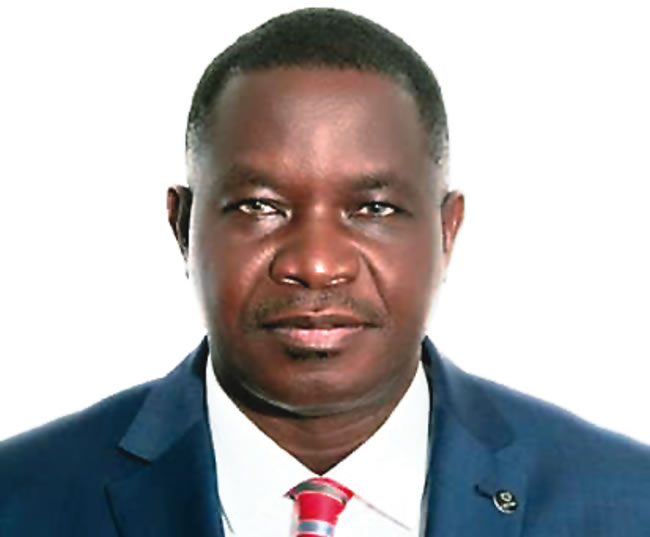The national president of the Association of Senior Civil Servants of Nigeria (ASCSN), Comrade Tommy Etim Okon, in this interview with CHRISTIAN APPOLOS, talks about the hovering cloud of industrial action over the issue of palliatives to cushion the fallout of fuel subsidy removal.
What is the way out from the Nigeria Labour Congress’ (NLC) indefinite strike threat, Trade Union Congress’ (TUC) meetings with the government and the Federal Government’s delayed promises on palliatives?
It is unfortunate that we have a government that pretends. Strike is preventable; the onus is on the parties, that is government and the unions, to have understanding, work together and see themselves as partners in progress because once it is well with the economy, it is well with the worker. And when it is well with the worker, the worker is happy and when the worker is happy, he/she puts in the best and there is bound to the productivity. When there is productivity increase, you have what is called national ranking and international competitiveness.
But in a situation where the government believes it knows everything without involving unions in the planning stage of a policy and even in the execution stage, it amounts to a policy that is formulated without considering those at the receiving end and such policy always cause crisis. A little input can refine a policy. In essence, there is what we call communication. Oftentimes the government downplays communication with the labour, with the stakeholders. All over the world, any government that carries the people along often succeeds because the people support the government and its policies.
Right now, the unions are pressing for a statement from the president that has to do with the wage award for the workers, transportation for the workers to cushion the effects of the removal of fuel subsidy. That on its own can douse any tension and prevent strike. But apparently, government prefers to apprehend strikes with court injunctions. But when you do the right thing, when you communicate with the right stakeholders, it gives you the opportunity to prevent strike.
And I want to put it on record; there is no union that likes strike because to call for a strike that you can sustain for one to three days or one week, is very expensive. It could be easy to mobilise, but to demobilise is very expensive because it involves money, strategy and a whole lot of things.
Trade unions often choose to go on strike because government has failed to recognise that they need to communicate. It is not until you use the instrument of the court to apprehend strike because it is just a temporary measure. The truth is that government push trade unions to the point they decide to go on strike.
When you push workers to the wall, there is going to be reaction that even the court cannot stop. Government intentionally uses delay tactics to frustrate labour unions whenever there are issues to dialogue and take actions. They make us come to meetings; they make promises even when they know they are not ready to implement the agreements reached. Then when the unions resolve to take industrial action, they use the court against unions. But they always forget that courts also have unions. Will a judge sit in the comfort of his house to issue an injunction to stop the strike?
The issues are very easy and simple to resolve but insincerity on the side of government is the bane. Dialogue, communication and implementation of agreement are the solution.
Is it a must to consult the trade unions in the name of tripartitism?
Some people may look at it in a certain way and query why the government must consult workers’ unions. Take for instance when Mr President announced the removal of fuel subsidy. He (the president), workers and citizens wouldn’t have been under the situation we are all in right now if government had consulted and the policy decision negotiated through what is called social dialogue.
For the International Labour Organisation (ILO) to lay emphasis on social dialogue that explicitly stress the need for social dialogue and collective bargaining puts to rest the argument that involving stakeholders before you take decision on issues that will affect them is necessary for a smooth implementation and achieving the desired success.
You are not engaging them because they will stop you, no. But you are bringing them to have their inputs so that you can have a smooth and successful policy and development in the interest of the nation. And that is why we keep saying unless the government sees labour as partners in progress, there will always be antagonism.
That you have a wife and children you provide money for their upkeep does not mean you will always do whatever you wish even when that decision will cause hardship on them, then you expect them to be quiet and always obey you. For God sake it is a democracy. You must involve them in decision making because they are stakeholders.
If you think that labour is not important, bring out all the money you have, get a land, build a structure and let nobody work, let me see whether there will be productivity. That is why our slogan says “Labour creates wealth” because among the factors of production, labour is central.
Even if you bring artificial intelligence, it is human effort that will punch the buttons. So the need for consultation, social dialogue among the stakeholders is key to the success of any policy and overall development. It is just like you want to fix the national minimum wage and you decide to take a decision alone because you are president or governor without involving the labour unions and other employers of labour. You will end up creating anarchy because it has to be tripartite. Consultation is key in decision making, implementation and execution. So, no matter what you put in place, without labour, you are putting but a monument. That tells you that labour is central.
The call is for government to recognise the importance of trade unions and utilise it to drive the progress and success for development and economic growth of the country. When you have a government or organisation that embraces the worker in a symbiotic relationship, you will see success and progress because a healthy relationship between employer and workers is strategic engagement to achieving greater success.
Come to think of it, even before anyone gets to the level of managing the resources or the economy of a country, the person must have passed through the tutelage and foundation as a worker. Nobody is born and gets to the top overnight. Whether you work in the private sector or government establishment, you are a worker. And like I said, you may have money as capital, have land and everything, but labour is central when it comes to the factors of production; and very key.
So any government that wants success must have that interface and work in synergy with the labour unions. Unions are not coming to take over management function from you but when it comes to issues of implementation of a policy that affect the workers, workers’ input is key.
You mentioned the ILO’s international labour standards, is government oblivious of them, their stipulations and the gains thereof?
Nigerian government knows these international labour standards and that upholding them is the right thing to do. But it depends on who is advising the government at a particular period and the style of leadership the president wants. A lot of people are advising government from an uninformed point of view. For instance, the government made a pronouncement on palliative but the same government did not look at implementation strategy. The same government did not also set up machinery that will implement this subsidy removal palliative because as we are talking now, we don’t know who to hold accountable. We all say government and everybody is government. But if Mr President, when he announced fuel subsidy removal and palliatives, had said so so agency has been established to carry out the responsibility, it would have been very easy.
Take for instance in 2012 when former President Jonathan removed this same fuel subsidy, he set up what was called SURE-P and a committee headed by Christopher Kolade as the chairman. There and then, every other person knew that this committee is to be held responsible. But in this case, we are running to government here and there.
In any policy that you want to work, you must set up implementation strategy because that will give a timeline. What do we hear on this one? N5 billion to the state, grains to the state. But as a president of workers, I need to ask what happened to the federal workers? That is where we are and that is why you are seeing the pressure because it is incumbent on the government to announce what happened or the palliative as it affects the federal workers. Government must change its tricky style and be sincere, that is the only way out.
READ ALSO FROM NIGERIAN TRIBUNE






